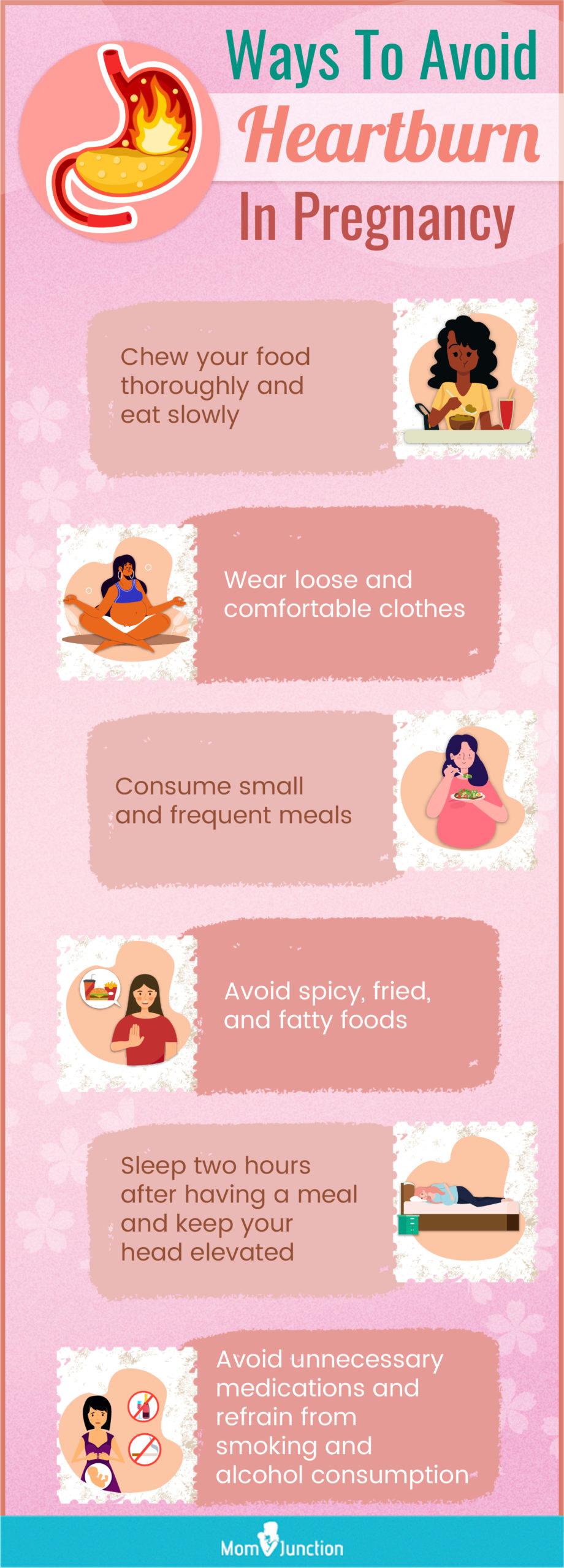
Signs of Pregnancy Heartburn: A Comprehensive Guide
Heartburn, a burning sensation in the chest, is a common pregnancy symptom that can affect up to 80% of expectant mothers. It occurs when stomach acid backs up into the esophagus, causing irritation and discomfort. While heartburn can be an annoying and uncomfortable part of pregnancy, it is usually not a sign of a serious medical condition.
Causes of Pregnancy Heartburn
During pregnancy, several factors contribute to heartburn:
- Hormonal changes: Progesterone, a hormone produced during pregnancy, relaxes the muscles in the digestive tract, including the valve that separates the stomach from the esophagus. This relaxation allows stomach acid to more easily flow back into the esophagus.
- Increased pressure on the stomach: As the uterus grows, it puts pressure on the stomach, pushing it upwards and increasing the likelihood of stomach acid reflux.
- Delayed gastric emptying: Progesterone also slows down the emptying of the stomach, which can lead to increased pressure and heartburn.
- Increased acid production: Pregnancy can also increase the production of stomach acid, further contributing to heartburn.
Signs and Symptoms of Pregnancy Heartburn
The most common sign of pregnancy heartburn is a burning sensation in the chest that occurs after eating or lying down. Other symptoms may include:
- Sour taste in the mouth
- Regurgitation of food or liquid
- Nausea and vomiting
- Pain or discomfort in the upper abdomen
- Difficulty swallowing
- Hoarseness or sore throat
Risk Factors for Pregnancy Heartburn
Certain factors can increase the risk of developing heartburn during pregnancy:
- Obesity: Excess weight puts pressure on the stomach, increasing the likelihood of acid reflux.
- Multiple pregnancy: Carrying twins or triplets can put even more pressure on the stomach and digestive system.
- Certain foods: Spicy, fatty, or acidic foods can trigger heartburn in some individuals.
- Lying down after eating: Lying down can allow stomach acid to more easily flow back into the esophagus.
- Smoking: Smoking can relax the esophageal sphincter, making it more likely for acid to reflux.
Complications of Pregnancy Heartburn
While heartburn is generally not a serious medical condition, it can lead to complications in some cases:
- Esophagitis: Chronic heartburn can cause inflammation and damage to the esophageal lining.
- Aspiration pneumonia: If stomach acid is aspirated into the lungs, it can cause aspiration pneumonia.
- Preterm labor: Severe heartburn has been linked to an increased risk of preterm labor in some studies.
Managing Pregnancy Heartburn
There are several lifestyle changes and home remedies that can help manage pregnancy heartburn:
- Dietary modifications: Avoid foods that trigger heartburn, such as spicy, fatty, or acidic foods. Eat smaller, more frequent meals to reduce pressure on the stomach.
- Avoid lying down after eating: Wait at least 2-3 hours after eating before lying down or going to bed.
- Elevate your head while sleeping: Use pillows to prop up your head and chest to reduce acid reflux.
- Wear loose-fitting clothing: Tight clothing can put pressure on the stomach and worsen heartburn.
- Avoid smoking: Smoking relaxes the esophageal sphincter, making it more likely for acid to reflux.
- Over-the-counter medications: Antacids, such as Tums or Rolaids, can neutralize stomach acid and provide temporary relief from heartburn.
- Prescription medications: In some cases, your doctor may prescribe stronger medications to reduce stomach acid production.
When to Seek Medical Attention
While most cases of pregnancy heartburn can be managed with lifestyle changes and home remedies, it is important to seek medical attention if you experience any of the following:
- Severe or persistent heartburn that does not respond to home treatment
- Pain or difficulty swallowing
- Regurgitation of blood or vomit
- Hoarseness or sore throat that persists
- Signs of aspiration pneumonia, such as fever, chills, and shortness of breath
Conclusion
Pregnancy heartburn is a common and often uncomfortable symptom that can affect expectant mothers. While it is usually not a serious medical condition, it can lead to complications if left untreated. By understanding the causes, signs, and risk factors of pregnancy heartburn, you can take steps to manage it and minimize discomfort. If you experience severe or persistent heartburn, it is important to seek medical attention to rule out any underlying medical conditions.